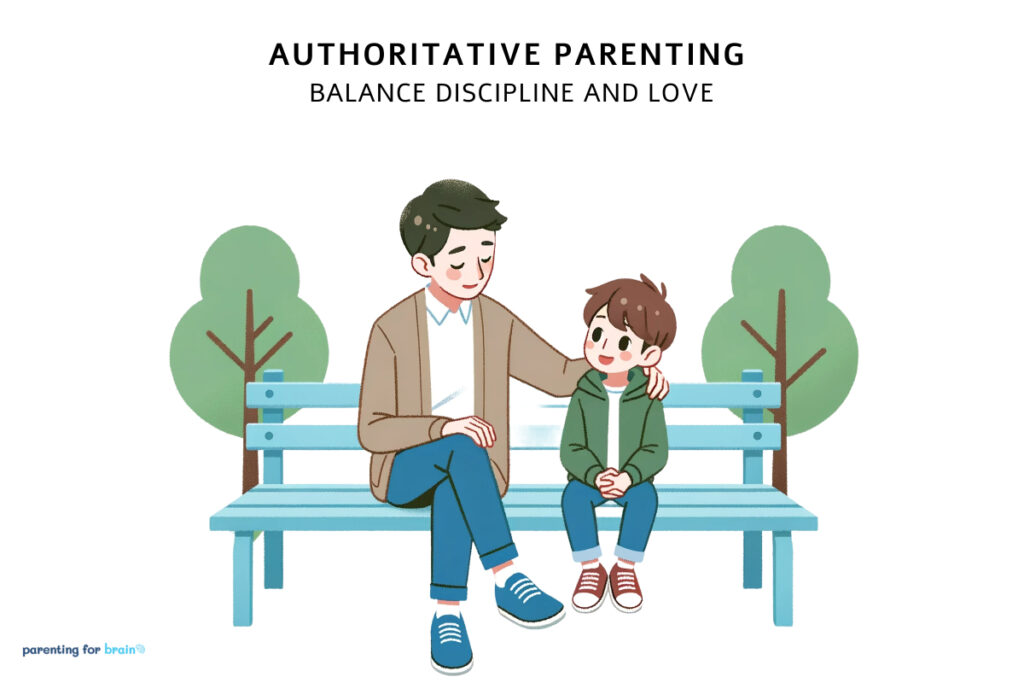Defining Authoritative Parenting
Authoritative parenting is characterized by a balanced approach that combines warmth, responsiveness, and clear expectations. Unlike authoritarian parenting, which is rigid and controlling, or permissive parenting, which lacks structure, authoritative Parentings.us/ parents set rules and limits while also being nurturing and supportive.
Contrasting Authoritative Parenting with Other Styles
It’s essential to differentiate authoritative parenting from authoritarian and permissive styles. Authoritarian parents tend to be demanding and directive, often enforcing obedience without considering the child’s perspective. On the other hand, permissive parents are indulgent and lenient, allowing their children considerable freedom with few consequences.
Key Characteristics of Authoritative Parenting
Communication and Warmth
Central to authoritative parenting is open communication and warmth. Parents actively listen to their children, validate their feelings, and provide guidance without judgment. This fosters trust and mutual respect between parents and children.
Setting Clear Expectations and Boundaries
Authoritative parents establish clear expectations and boundaries, which are consistently enforced. However, they also allow for flexibility and negotiation, taking into account the child’s age, temperament, and developmental stage.
Responsiveness and Supportiveness
Being responsive and supportive is another hallmark of authoritative parenting. Parents are emotionally attuned to their children’s needs, offering guidance, encouragement, and assistance when necessary. This creates a secure attachment bond and promotes healthy emotional development.
Benefits of Authoritative Parenting
Development of Independence and Self-Regulation
Authoritative parenting nurtures independence and self-regulation in children. By providing a supportive environment and gradually granting age-appropriate autonomy, children learn to make responsible decisions and manage their emotions effectively.
Positive Social and Emotional Outcomes
Research has consistently shown that children raised with authoritative parenting exhibit better social and emotional skills. They are more empathetic, cooperative, and resilient, which enhances their relationships with peers and adults.
Academic Success
Authoritative parenting is also associated with academic success. By fostering a positive learning environment, encouraging curiosity, and emphasizing the value of education, children are motivated to excel academically and pursue their goals.
Challenges and Criticisms
Balancing Freedom and Control
One challenge of authoritative parenting is striking the right balance between granting freedom and maintaining control. Finding the middle ground can be challenging, especially during adolescence when children crave independence but still need guidance.
Cultural Variations
The application of authoritative parenting may vary across cultures due to differing beliefs, values, and societal norms. What works in one cultural context may not be as effective in another, highlighting the importance of cultural sensitivity and adaptation.
Addressing Misconceptions
Authoritative parenting is sometimes misunderstood or misinterpreted as being overly permissive or strict. It’s crucial to dispel these misconceptions and emphasize the positive outcomes associated with this parenting style.
Implementing Authoritative Parenting
Building Trust and Connection
Building a strong foundation of trust and connection is essential for authoritative parenting to thrive. This involves spending quality time together, being emotionally available, and showing empathy and understanding towards your child.
Consistency in Discipline
Consistency is key when it comes to discipline in authoritative parenting. Parents must follow through with consequences and uphold established rules, while also being open to dialogue and renegotiation when appropriate.
Flexibility and Adaptability
While authoritative parents set clear expectations, they also recognize the importance of flexibility and adaptability. Being willing to adjust rules and strategies based on changing circumstances fosters resilience and problem-solving skills in children.
Research and Studies on Authoritative Parenting
Longitudinal Studies
Numerous longitudinal studies have demonstrated the long-term benefits of authoritative parenting on children’s outcomes. From improved mental health to higher academic achievement, the evidence overwhelmingly supports the effectiveness of this approach.
Comparisons with Other Parenting Styles
Comparative research has also highlighted the superiority of authoritative parenting compared to authoritarian and permissive styles. Children raised with authoritative parenting exhibit greater emotional intelligence, self-esteem, and overall well-being.
Real-Life Examples and Scenarios
Parent-Child Interactions
Observing real-life examples of authoritative parenting can provide valuable insights into its application. From setting boundaries to resolving conflicts, witnessing positive parent-child interactions can inspire and guide parents in their own journey.
Handling Conflict and Challenges
Conflict is inevitable in any parent-child relationship, but how it’s managed can make all the difference. Authoritative parents approach conflicts with empathy, problem-solving skills, and a focus on maintaining the parent-child bond.
Conclusion
In conclusion, authoritative parenting is a highly effective approach that balances warmth, responsiveness, and clear expectations. By fostering independence, resilience, and positive relationships, it lays the foundation for children to thrive emotionally, socially, and academically.

